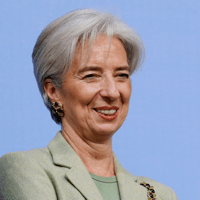The International Monetary Fund is in an unexpected state of flux. The shocking sexual assault charges, arrest and subsequent resignation of former Managing Director Dominique Strauss-Kahn have turned the institution's leadership on its ear. As the surprise of last week's events dissipates, the focus now becomes selecting Strauss-Kahn's replacement. In the coming weeks, a highly political process will unfold behind the scenes as the Europeans wrangle with a group of emboldened emerging-market countries for the fund's top slot. In the middle lie the Americans, who hold the key to the success of either group. If the U.S. is shrewd, it will lobby for a bargain that will leave the Europeans in control for now, but that paves the way for meaningful change in the near future.
Of late, the IMF has been enjoying a renewed sense of importance. Last year alone, the fund doled out more than $90 billion in emergency loans due in large part to the crisis in Europe. It has also benefited greatly from post-financial crisis G-20 summits, which have repeatedly endorsed the IMF's role as chief financial crisis manager and watchdog.
Nonetheless, the institution remains controversial in many parts of the world for its handling of financial crises in emerging markets in the 1980s and 1990s. In Asia and Latin America, the IMF is widely viewed as a pro-Western institution that imposes politically unpopular -- and often economically ineffective -- conditions on low- and middle-income countries that come to it for financial assistance.

